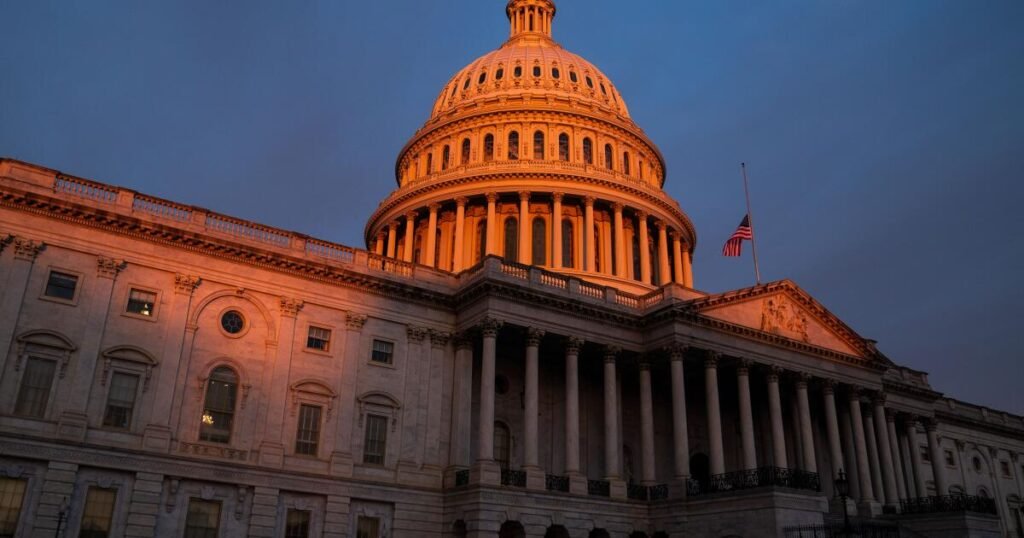Sacramento
Proposition 50 isn’t really about saving democracy or preventing power grabs. It’s more about determining which political party has the upper hand in the legislature.
It boils down to whether Republicans and Democrats can share power effectively.
There’s also the issue of managing a president who isn’t Trump, as next year could see a shift in the House from Republican to Democratic control, potentially ending a one-party grip on federal governance. Proposal 50 plays a role in that shift.
Will the ever-compliant Republican Congress let Trump continue unchecked? Or will a new Democrat-led House fulfill its duty to provide constitutional checks and balances against the executive branch?
This is especially crucial in the upcoming special election on November 4 in California, motivating political contributors to pump in $128 million so far.
But let’s take a step back.
For years, state lawmakers manipulated district lines to favor themselves, engaging in blatant gerrymandering to benefit their parties. Even Sacramento legislators got in on the action, drawing up legislative districts that served their interests.
While unethical, it was legal—at least until 2001, when lawmakers from both parties colluded to create districts that safeguarded incumbents, regardless of their party affiliation.
California voters finally had enough and voted to ban gerrymandering in 2008, assigning legislative boundary changes to independent, bipartisan citizen committees. By 2010, these panels were in charge of drafting district maps.
The results were favorable. Politicians could no longer select their voters, leading to more competitive districts.
District maps have always been revised at the beginning of each decade, following the 10th Census.
Now, with concerns that Republicans might lose ground in the next election, Trump has been pushing for mid-cycle gerrymanders, particularly in Texas, to secure additional Republican seats. He’s also taken notice of other Republican-led states.
In response, California Governor Gavin Newsom has urged the Democrat-controlled legislature to create a new map aimed at securing five additional Democrat seats.
Currently, Democrats hold the majority in California’s House delegation, with a disproportionate 43-9 advantage over Republicans. In Texas, Republicans occupy 25 of the 38 House seats. Nationally, Democrats need to flip just three seats to regain control.
Unlike Texas, Newsom requires voter approval to resume gerrymandering, which is essentially what Proposition 50 proposes—along with getting voter endorsement for a new, oddly shaped congressional map designed by Democrats.
How unusual is it? The proposed district stretches hundreds of miles, reaching from rural northeastern Oregon all the way to the San Francisco Bay area, tailored for Democratic voters.
According to the Voting Act, an Independent Commission will reevaluate district lines in 2031 after the next census. Opponents of Proposition 50 contend that Democrats shouldn’t be trusted to maintain any temporary gerrymandering.
They accuse Democrats of hypocrisy, criticizing what they call the “Newsom Power Grab” while ignoring similar tactics initiated by Trump and Texas Governor Abbott.
This all comes down to a fierce struggle for political power, devoid of any lofty ideals.
John Fleischmann, a long-time Republican, voiced the party’s position in a blog, describing Proposition 50 as “a blatant power grab by Gavin Newsom.” He warns that if it goes through, five of California’s nine safe GOP seats could flip to become safe Democrat ones, potentially turning the House upside down next year.
In trying to rally support among Democratic voters, who currently outnumber Republicans in California by a margin of 2-1, Newsom frames Proposition 50 as vital for democracy.
“It’s all in crisis,” he claims, perhaps a bit dramatically. “This is a profoundly consequential moment in American history. If we don’t make a stand, we could lose our republic, and we’re determined to protect it.”
But the survival of our Republic doesn’t hinge solely on Newsom’s gerrymandering initiative or Trump’s actions.
Proposition 50 faces strong opposition, particularly from former Governor Arnold Schwarzenegger and wealthy Republican donor Charles Munger Jr., who has contributed $33 million to initiatives against it.
In a recent op-ed, Munger likened gerrymandering to cancer, stating that “mid-stage gerrymanders are metastases.” He argues that if Democrats engage in gerrymandering, they lose any claims to moral superiority.
But if this is the moral high ground we operate under the Trump administration, then I might prefer a different perspective.
My idea of moral high ground doesn’t involve a Congress that fails to confront a president who cuts off critical funding for university research.
In a recent opinion piece for the Los Angeles Times, Isla Ahmad highlighted California’s situation compared to other states like Texas, which have engaged in gerrymandering for partisan gain. She posed an important question: “Should you take the high road when your opponent is playing dirty?”
The answer is complicated; ideally, we’d all play by the same rules. But sometimes, temporary measures may be necessary. After Trump leaves, perhaps we can revisit a more principled approach.
What else should I read?
Must see: California voters were mailed inaccurate guides ahead of the November special election
Interpersonal reading: He is a real challenge for Gavin Newsom. And the rising democratic stars
Rimes Special: Some claim they were compensated to settle in the largest sexual abuse case in US history.







